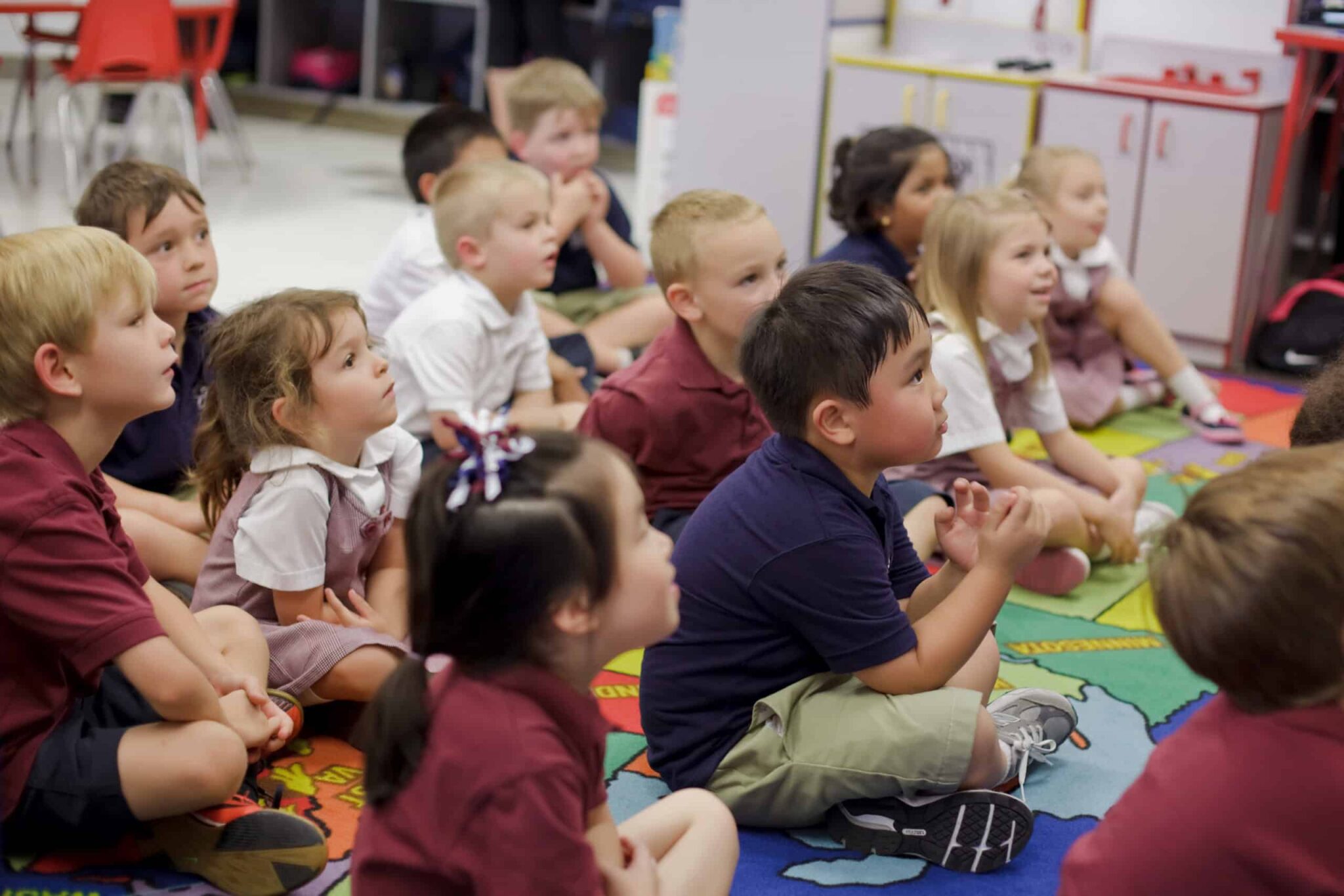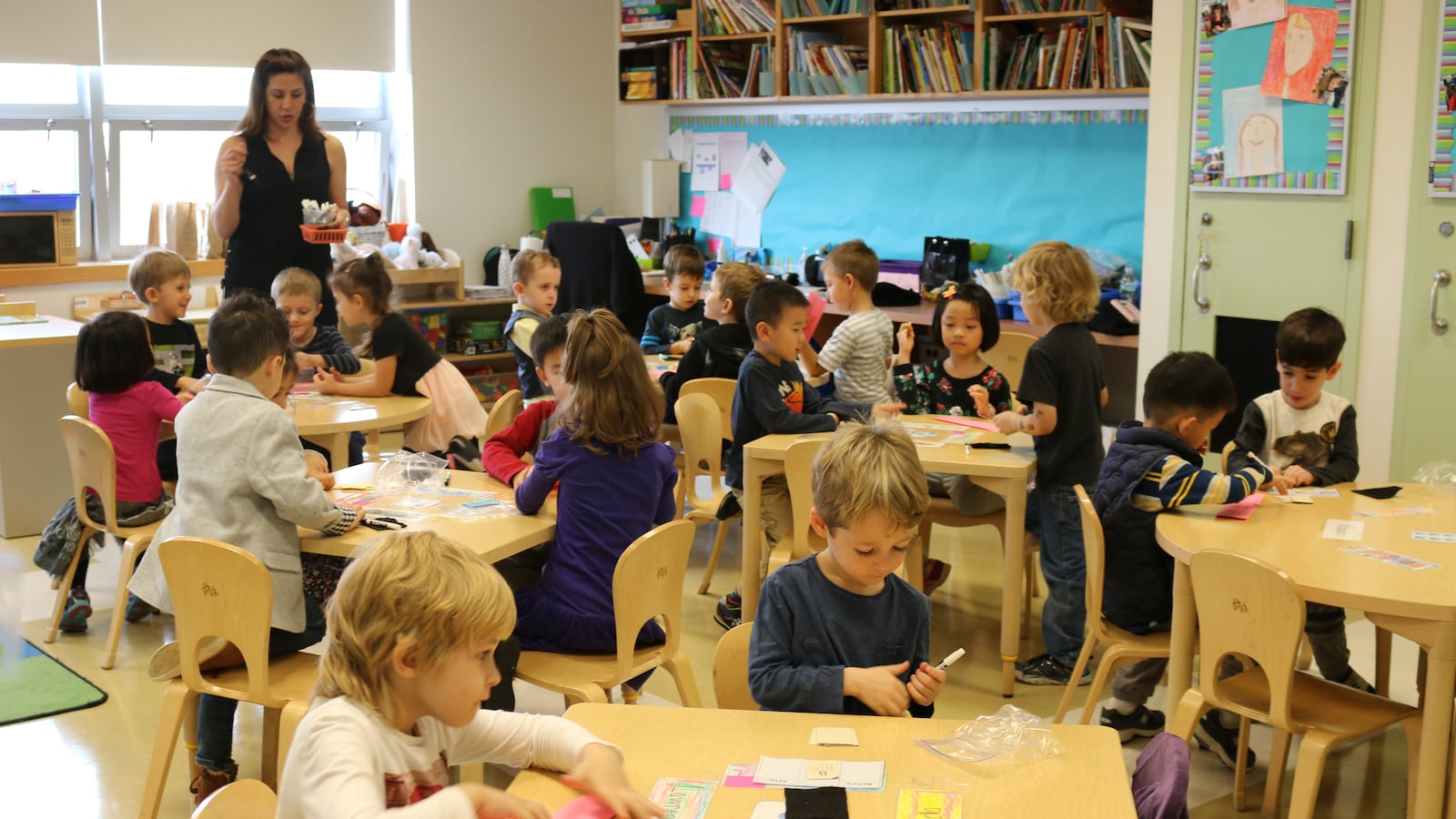Game-based education that motivates Private School learners
Wiki Article
All About Grade School: Necessary Facts and Improving Experiences for Young Learners
Elementary school plays a pivotal duty in shaping young students' futures. It includes crucial academic topics and nurtures social skills via structured communications. In addition, after-school activities offer possibilities for creative thinking and team effort. Parental involvement better enhances this structure, supporting kids in their scholastic trips. As these components intertwine, they produce an extensive educational experience. However, what certain methods can moms and dads and teachers utilize to maximize this development?
Recognizing the Elementary School Educational Program
As students commence their elementary school journey, they come across an educational program created to develop foundational abilities and knowledge throughout various topics. This curriculum normally incorporates core locations such as mathematics, language arts, scientific research, and social studies. Each topic is structured to cultivate vital reasoning, imagination, and analytical abilities, important for future scholastic success.Language arts concentrate on analysis, writing, and communication skills, fostering pupils' ability to reveal themselves clearly. Math presents basic concepts, including addition, reduction, and later on, multiplication and division, preparing for a lot more intricate analytical. Scientific research encourages query and exploration, sparking interest concerning the environment, while social research studies imparts an understanding of neighborhood and multiculturalism.
In addition to core topics, the curriculum typically consists of arts and athletics, giving a versatile instructional experience that promotes both physical and intellectual development. Subsequently, grade college serves as a vital platform for long-lasting discovering.

The Structure of Quality College Education
While quality school education and learning differs by area and institution, it usually follows a structured structure that promotes modern knowing. Commonly, quality institution incorporates a series of grades, often from preschool via sixth or 5th grade, depending upon the academic system. Each grade degree matches to particular developing milestones, with curricula made to develop upon previous knowledge.Classes are usually organized right into core topics, consisting of mathematics, language arts, scientific research, and social researches, guaranteeing that students obtain a well-rounded education and learning. Direction frequently combines direct mentor with hands-on activities, promoting involvement and critical thinking.

Evaluation techniques differ however usually include examinations, tasks, and tests to examine trainee understanding. In addition, instructors frequently collaborate to develop interdisciplinary systems, enhancing the finding out experience. Overall, the framework of elementary school education and learning intends to cultivate fundamental skills, prepare trainees for future academic difficulties, and advertise a love for finding out that extends past the classroom.
Social Abilities Advancement in Early Learners
Elementary school education and learning not only concentrates on scholastic skills however likewise plays a considerable role in the growth of social abilities amongst early students. Throughout these formative years, children involve in different tasks that motivate interaction, cooperation, and communication with peers. Group jobs and cooperative learning settings supply possibilities for youngsters to practice sharing, bargaining, and resolving conflicts.Structured playtime promotes vital skills like empathy and understanding, as kids discover to recognize and respond to the feelings of others. With directed social communications, teachers help pupils establish vital paying attention and conversational abilities. As kids navigate relationships and group characteristics, they obtain confidence in their social capabilities.
The Role of After-school Activities
After-school activities play a significant duty in boosting the academic experience of quality college trainees by providing methods for personal development past the classroom. These tasks enable trainees to discover abilities and interests, promoting creative thinking and self-expression. Participation in sporting activities, songs, art, and clubs cultivates synergy, management abilities, and a sense of belonging.Engaging in such activities advertises physical health and health, motivating trainees to keep an active lifestyle. Extracurricular programs likewise act as a system for trainees to develop relationships and develop social skills, which are necessary for their overall growth
As trainees navigate their why not try this out passions beyond academics, they get important experiences that add to their positive self-image and resilience. Inevitably, these tasks play a critical duty fit well-rounded people, preparing them for future difficulties both in and out of the classroom.
Supporting Learning Through Parental Participation
Parental participation substantially improves the academic journey of elementary school pupils, as it fosters a supportive environment that strengthens discovering. Engaged moms and dads add to their youngsters's academic success by going to school events, assisting with homework, and preserving open communication with educators. Private Grade School Peoria. This involvement not just improves trainees' motivation but likewise grows a feeling of belonging and self-confidenceResearch indicates that children whose moms and dads are proactively entailed often tend to have higher grades, better attendance, and enhanced habits in college. In addition, adult involvement urges the growth of necessary life skills, such as time management and duty.
Colleges can promote this participation by hosting workshops, supplying resources, and motivating regular comments. By producing partnerships in between teachers and moms and dads, elementary school can ensure a complete strategy to pupil growth. Ultimately, parental involvement acts as a foundation for fostering a favorable academic experience, profiting both students and the institution neighborhood overall.
Often Asked Questions
What Are the Typical Elementary School Hours for Trainees?
Common grade school hours for pupils usually range from 8:00 AM to 3:00 PM, differing by area. Many institutions include a lunch break and recess, guaranteeing trainees have time to reenergize throughout the day.Exactly How Do Quality Schools Address Diverse Knowing Demands?
Quality institutions attend to diverse use this link discovering demands with differentiated direction, customized lesson strategies, and support solutions, making certain all students receive suitable sources. Teachers collaborate with professionals to develop comprehensive environments that promote individual growth and involvement.What Is the Function of Technology in Elementary School Education?
Innovation in grade college education and learning enhances learning via interactive tools, customized finding out experiences, and accessibility to substantial resources. It cultivates collaboration among students and teachers, preparing kids for a technology-driven future while sustaining diverse instructional requirements.Exactly How Can Moms And Dads Aid With Research Efficiently?
Moms and dads can aid with research effectively by creating an organized setting, encouraging self-reliance, offering resources, and offering assistance without directly offering answers. Communication with educators likewise boosts understanding of expectations visit here and promotes academic success.What Prevail Challenges Faced by Elementary School Trainees?
Typical obstacles dealt with by elementary school trainees consist of trouble with time management, understanding complicated concepts, preserving focus during lessons, navigating social dynamics, and stabilizing scholastic obligations with extracurricular tasks, all of which can impact their general efficiency.As pupils commence their quality college trip, they experience a curriculum designed to develop fundamental skills and understanding across different topics. Usually, quality institution includes a range of qualities, commonly from preschool through fifth or 6th grade, depending on the academic system. Extracurricular tasks play a considerable function in improving the instructional experience of quality institution trainees by offering methods for individual development past the classroom. Parental participation substantially boosts the instructional trip of quality institution pupils, as it promotes an encouraging setting that strengthens discovering. By producing partnerships between teachers and parents, grade institutions can guarantee a comprehensive strategy to pupil growth.
Report this wiki page